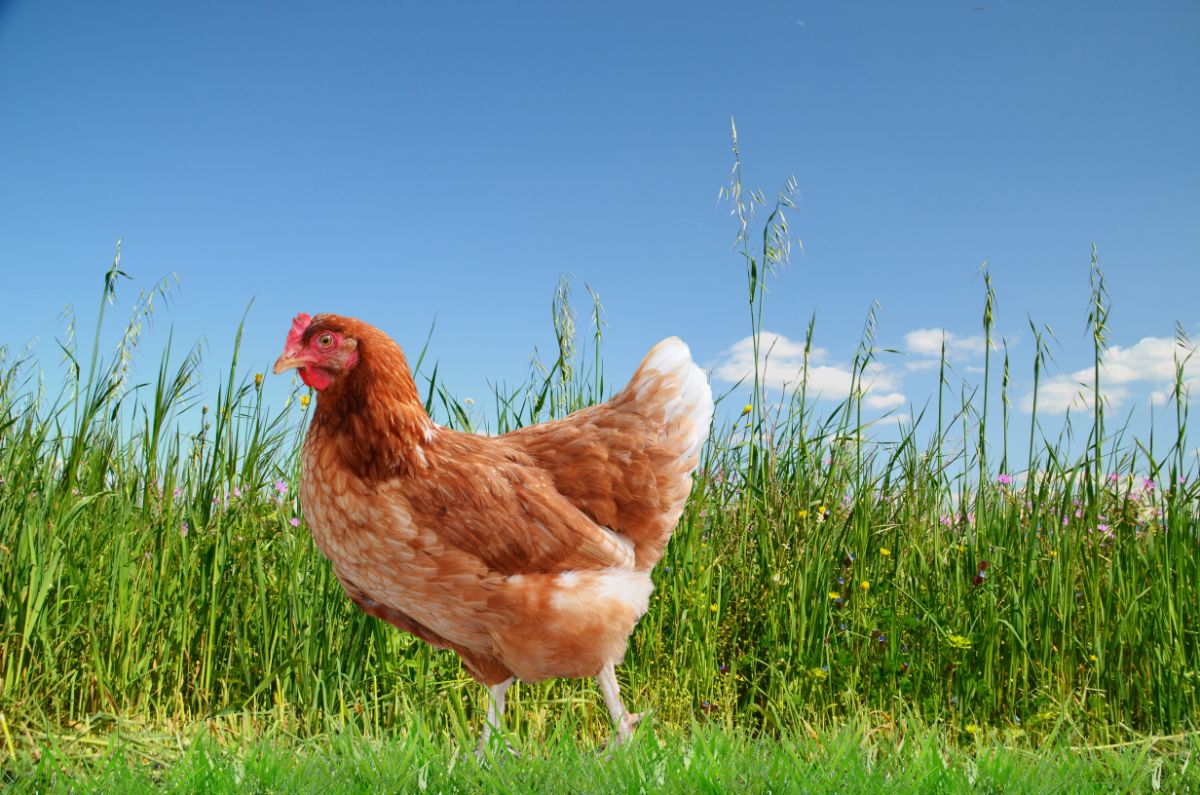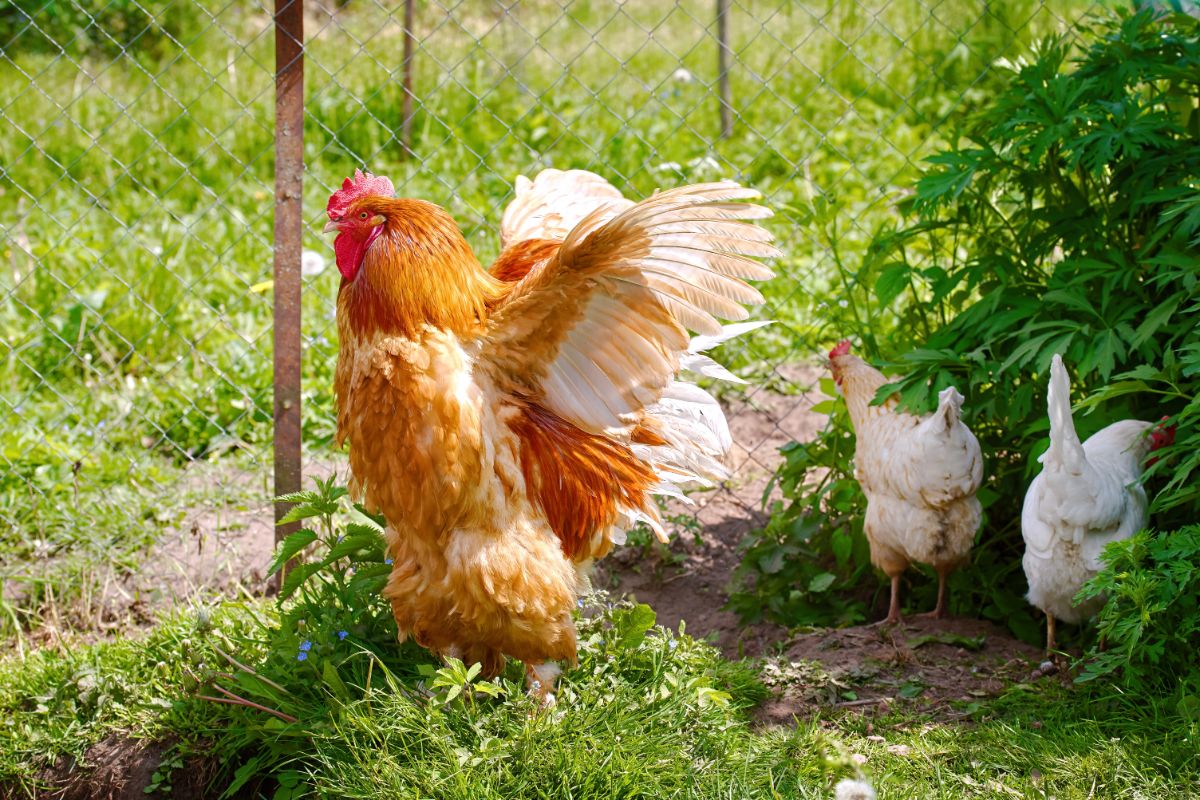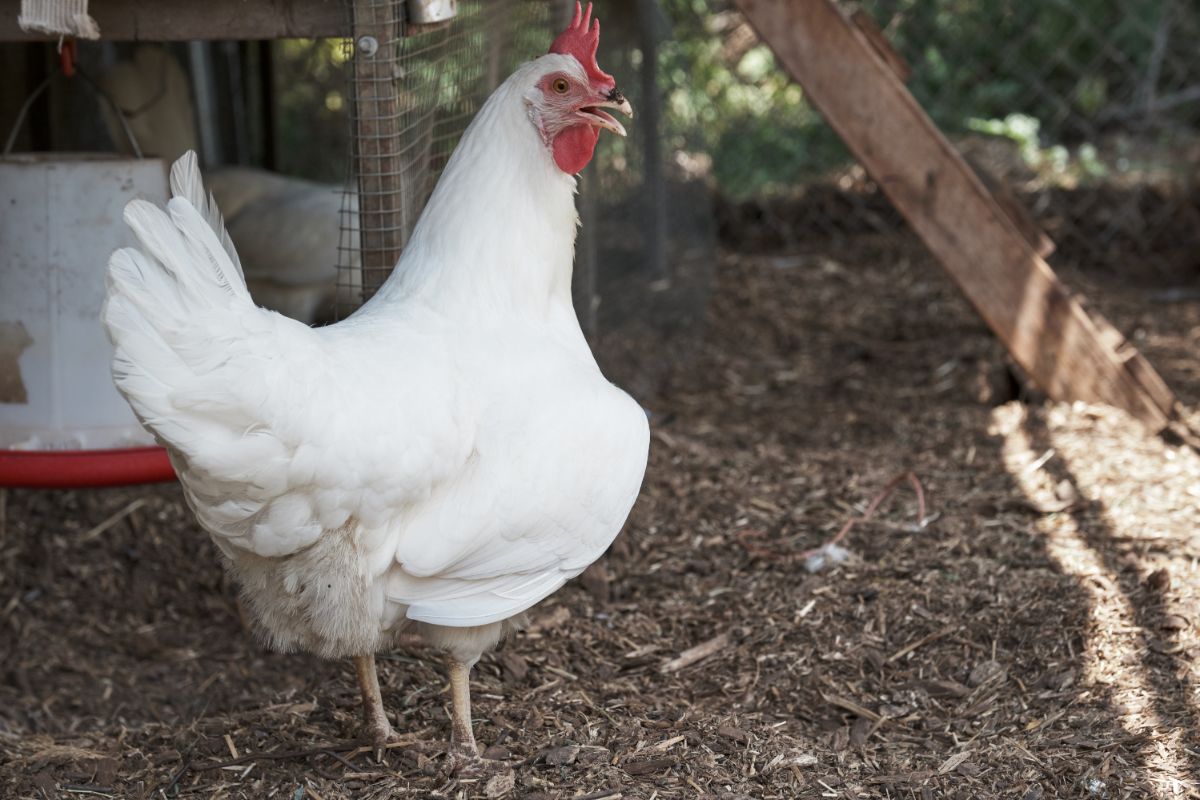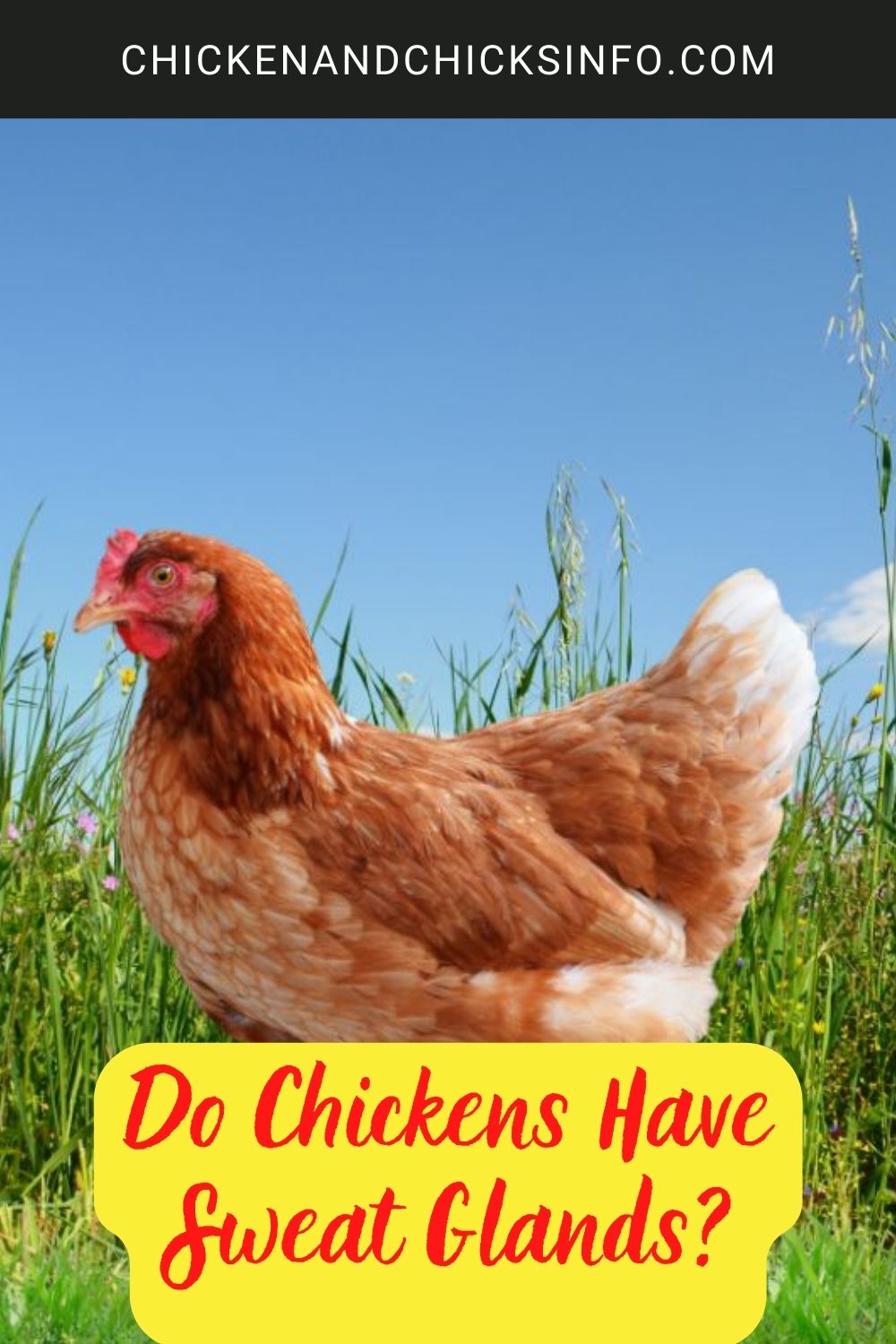
No, chickens do not have sweat gland and they do not sweat.
If a chicken is too hot and in need of regulating their body temperature, they do so by evaporating water from the surface of their lungs and air sacs.
This is called evaporative cooling.
This evaporation process turns liquid water into vapor and helps cool them down. The higher their temperature the faster the rate of evaporation.
Jump to:
How Does Chicken Release Excess Body Heat?
The main way a chicken regulates its temperature is through the process I described above.
Their body temperature is normally around 107 degrees F. As long as the outdoor temperatures are not extreme, a chicken can effectively regulate their body temperature without much issue.
If the temperature outdoors starts to exceed 95 degrees F, however, a chicken is at risk of becoming dehydrated and heat stress.
Humid conditions pose an even higher risk to chickens, too. It’s harder for them to use evaporative cooling by transferring water when there is more moisture in the air.
If you think about how you deal with humid air when you’re sweating, it’s similar. It’s harder for us to cool down in humid conditions too, both because sweating is less effective and because it’s harder to breathe.
Signs a Chicken Is Suffering From Heat Stress

Here are some of the telltale signs that a chicken is suffering from heat stress:
- Panting and spreading their wings to release heat and allow more airflow under their wings
- Laying fewer eggs or not laying at all
- Not being as active and showing signs they are in some discomfort
- Drinking a lot more than normal, and maybe having diarrhea
- Loss of appetite
- Pale color combs and wattles
If you spot any of these signs or have any reason to think your chickens are at risk of heat stress, you have to act quickly to help them.
How to Treat and Prevent Heat Stress in Chickens
The best ways to treat and prevent heat stress and dehydration in chickens are:
- Making sure they have plenty of clean drinking water available at all times. Chickens and birds, in general, are able to cool themselves off better if they’re well hydrated.
Related content - how much water do chicks drink?
- Supplement your chicken’s diet with moist foods and foods high in water content. Radishes are one of the vegetables high in water content, read are radishes good for chickens to find out more.
- Add electrolytes to their water. Electrolytes help us if we’re dehydrated, and it’s no different for chickens.
- Provide more shelter and shaded areas for chickens in the summer months. You might have to encourage them to stay in the shade too for their own good.
- Increase the amount of ventilation in their coop and living areas in the summer. This will lower the temperature in their coop, remove moisture, and improve the air quality.
Related Questions
Should My Chickens Be Panting?

Because they are not able to sweat, chickens pant as a way of driving some heat out of their bodies. Much like dogs and many other animals do.
Basically, as chickens pant, they bring cool air into their respiratory system and they convert water into water vapor the chicken can then exhale.
It’s a sign that they’re getting too hot, though. You should start taking steps to help them cool down before it escalates.
How Hot Is Too Hot for Chickens?
This is hard to answer as there are a lot of other factors that affect how chickens handle the hot temperatures.
Generally speaking, it’s believed that chickens are at their happiest when the outside temperature is around 75 degrees. I’ve spoken with a lot of people who live in areas that see temperatures in the high 90’s throughout the summer without any issues though.
This isn’t to say that their chooks enjoy this weather. Some of them have fans set up in the coops, and they do one or more of the things I outlined above to help their chickens stay cool.
In Summary - Chickens Do Not Have Sweat Glands and Do Not Sweat
Chickens do not and can not sweat. A lot of animals do not sweat, it’s not that uncommon.
Birds use evaporative cooling to regulate their body temperature and cool themselves down when they’re getting too hot. It works well for them, although they might need a little help in the hotter months - but who can blame them.





